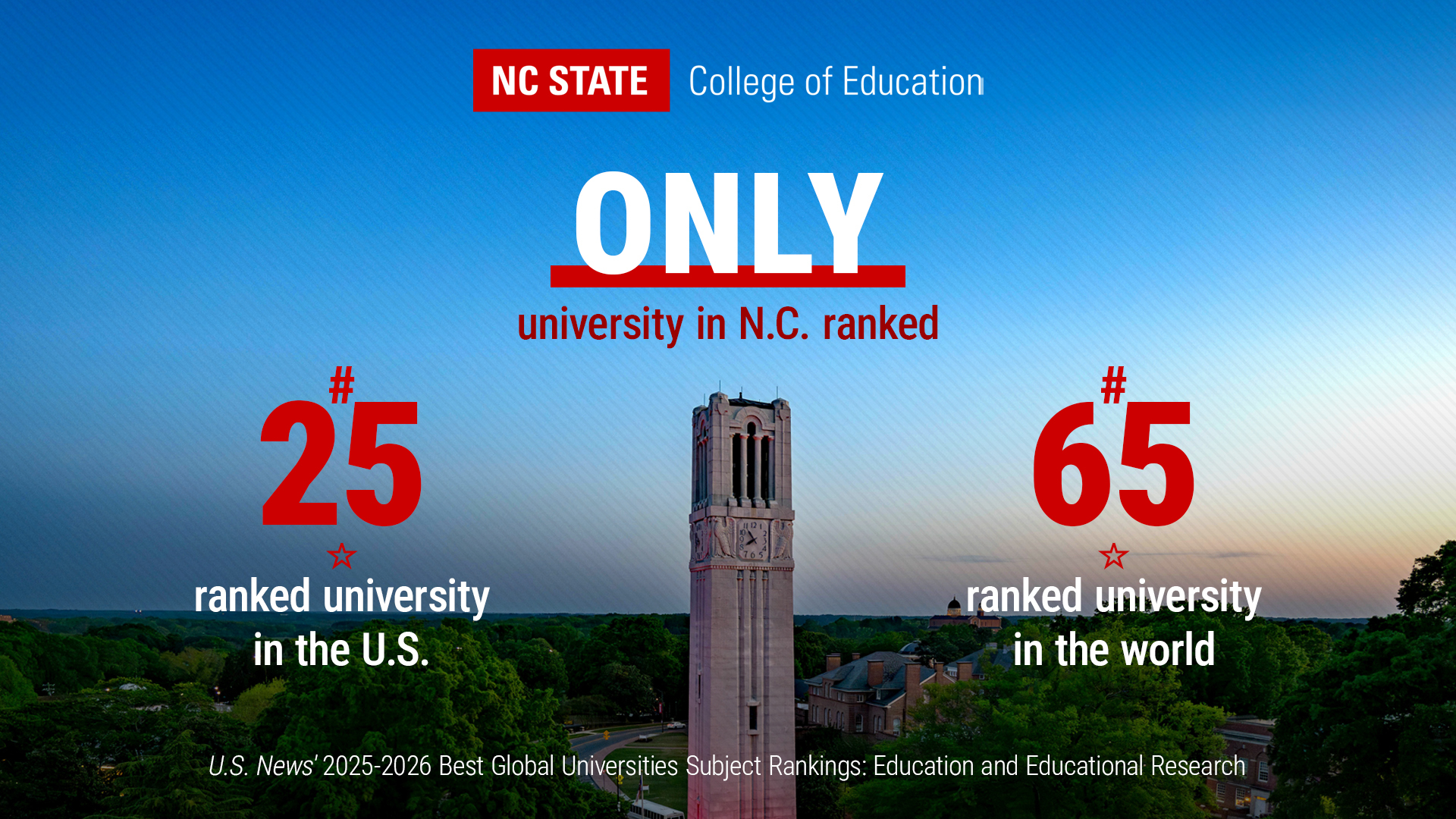Assistant Professors Samantha Marshall and Sunghwan Byun Aim to Improve Mathematics Learning for Multilingual Learners through Grant-funded Project

NC State College of Education Assistant Professor Samantha Marshall and Assistant Professor Sunghwan Byun are working to improve professional development for mathematics teachers of multilingual learners through a new grant-funded project entitled “Developing Mathematics Teachers Responsive Pedagogies for Linguistically Marginalized Students.”
The three-year, $459,848 project, funded by the National Science Foundation, will allow Marshall and Byun to investigate a novel professional development model to support math teachers’ learning of responsive pedagogies for linguistically marginalized students.
Working with secondary mathematics teachers in diverse settings across North Carolina, Marshall, Byun and the project team will develop workshops on linguistically responsive pedagogies that will be tailored to the specific challenges and school contexts of participants.
While topics will be specifically target participants’ needs, Marshall said tentative plans for workshops include focuses on eliciting mathematically robust explanations through questioning, leveraging students’ language and cultural resources for learning mathematics, cultivating a mathematics discourse community and ensuring that linguistically marginalized students can be full participants in it, and creating translanguaging spaces for productive disciplinary engagement in mathematics.
The project will also support participating teachers through a video coaching model that will use video as a key resource for teachers’ learning. These videos, Marshall said, will be able to provide a window into students’ experiences to help develop teachers’ insights for responsive pedagogies.
Additionally, the use of video-based coaching will enable the teacher and coach to relive and revisit recorded moments multiple times, allowing them to examine teaching practices from multiple perspectives as well as bring additional attention to nonverbal aspects of their teaching that they might not have noticed otherwise.
“Gestures and nonverbal means of communication are, in fact, very valuable when teachers are working with multilingual students,” Byun said. “The ability to rewatch the recording could allow teachers to improve teaching practices substantially. Without video, it could take many years of trial and error experience with multilingual students to build a strong set of teaching repertoire.”
Through implementing the professional development workshops and video coaching, Marshall and Byun aim to provide a portrait of the challenges and opportunities that mathematics teachers face in supporting linguistically marginalized students, develop a replicable model of professional development for teachers’ learning of responsive pedagogies and craft a theory about the nature and conditions necessary for mathematics’ teachers’ learning to support linguistically marginalized students.
“This project will offer a replicable professional development model that centers linguistically marginalized students’ experiences in the classroom, providing opportunities for mathematics teachers to develop asset-based views of their students and culturally and linguistically responsive pedagogical approaches,” Marshall said. “By illuminating the mechanisms of such learning, we hope that investigations of how to develop teachers’ learning to support linguistically marginalized students will contribute to the national effort to improve mathematics instruction, particularly for underserved students.”
- Categories:


